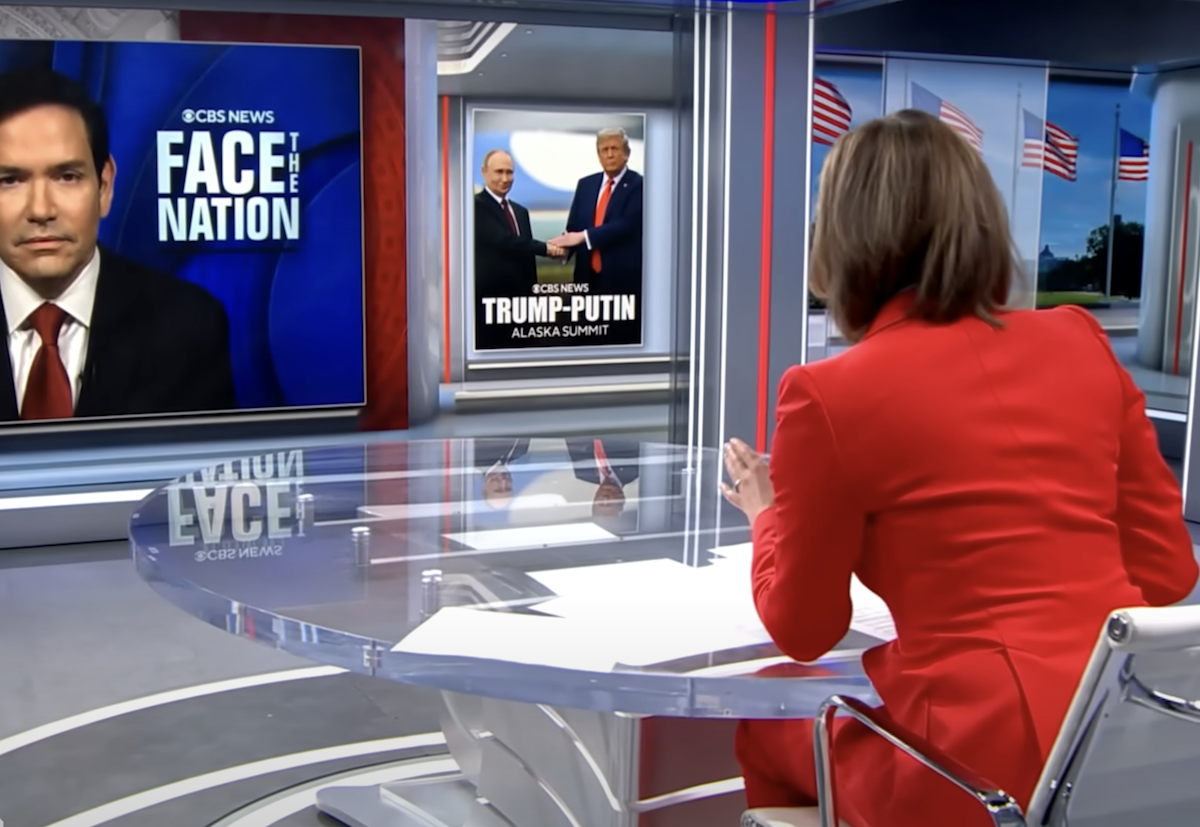In a recent interview, CBS anchor Margaret Brennan raised concerns about President Donald Trump potentially pressuring Ukrainian President Volodymyr Zelensky during a White House meeting. Brennan suggested that European leaders were attending the meeting to protect Zelensky from being "bullied" into unfavorable agreements.
Explainer Trump Designates Antifa as Domestic Terrorist Organization Amid Protests in Oregon
Secretary of State Marco Rubio responded by clarifying that the European leaders were invited by the U.S. administration and were not there to act as a protective entourage for Zelensky. He stated, "That’s not true…we invited them!" This exchange highlights ongoing tensions between media narratives and the realities of international diplomacy.
The interview reflects a broader criticism of how some media outlets portray the Ukraine conflict, often framing developments through a partisan lens. Critics argue that this approach undermines serious discussions about the war and the complexities involved in U.S.-Ukraine relations.
Supporters of the current administration assert that Trump’s approach to Ukraine is pragmatic, emphasizing the need for a realistic strategy to ensure Ukraine's sovereignty against Russian aggression. They argue that any peace deal must consider the geopolitical realities, including Russia's military capabilities and resources.
In the context of the ongoing war, the situation remains dire for Ukraine, with significant casualties reported. Estimates suggest that hundreds of thousands of lives have been lost since the conflict escalated.
Critics of the media's portrayal of the conflict argue that it often leans toward sensationalism, creating a narrative that does not align with the complexities on the ground. They contend that the media's focus on Trump’s role detracts from the urgent need for effective solutions to the crisis.
As the war continues, the stakes remain high for both Ukraine and its allies. The reality is that Ukraine's future may depend on its ability to navigate its relationship with the U.S. and Europe, while also managing the threat posed by Russia.
The ongoing conflict has prompted discussions about the effectiveness of current strategies and the potential for diplomatic resolutions. As the situation evolves, the media's role in shaping public perception and understanding of the war will be closely scrutinized.
In conclusion, the complexities of the Ukraine conflict require a nuanced approach that transcends partisan narratives. As leaders meet to discuss potential resolutions, the focus must remain on the realities faced by those directly impacted by the war.
Why it matters
- Concerns raised about Trump's potential pressure on Zelensky highlight tensions in U.S.-Ukraine relations.
- Media narratives criticized for sensationalism, impacting public understanding of the Ukraine conflict.
- The ongoing war has resulted in significant casualties, emphasizing the urgency for effective solutions.
What’s next
- Further discussions among leaders are expected to address diplomatic resolutions to the conflict.
- Media scrutiny will increase as the situation evolves, focusing on accurate portrayals of the war.
